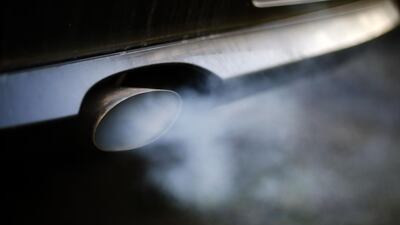A lifetime of exposure to air pollution could shorten a child's life by six months, according to a British study released on Tuesday.
Local government leaders and King’s College London teamed up to prove the effects of pollution in British cities was similar to a lifetime of inhaling dangerous air in congested regions.
Figures gathered in the United Kingdom since 2013 have shown that an eight-year-old child, born in 2011, could die up to six months early if exposed over their lifetime to air pollution.
If this worrying trend is to be reversed, air pollution will have to be curbed faster than is currently projected. The shocking statistic takes into account the anticipated reduction in pollution from 2011 to 2030.
The study, spearheaded by the Environmental Research Group at King's College London, investigated the effects of pollutants as a result of industrial combustion and from older polluting vehicles in cities.
These pollutants were estimated to lead to up to 36,000 deaths across the UK in 2013, and contribute to a wide range of health conditions including asthma, lung cancer, heart disease, strokes and, possibly, diabetes.
The study, released on Monday by UK100, a network of local government leaders, in partnership with the University of London, was conducted in the city of Bristol in the south-west of Britain
The study finds that in Bristol alone, air pollution contributed to five people dying prematurely every week, up to 260 in a year for a city of 536,000.
In response to the high levels of air pollution, Bristol is planning to introduce the country's first complete ban on diesel cars. Under the plans, all privately-owned diesel vehicles will be barred from entering a clean air zone in the city centre every day between 7am and 3pm by March 2021.
"This data shows why we need clear and binding targets for every city in the UK," said Polly Billington, director of UK100. "Bristol are taking action, but they need support and funding, including from businesses and central government in order to expand on their planned clean air zone," she added.
“We have a moral, ecological and legal duty to clean up the air we breathe. This research emphasises how vital it is that we act quickly to improve health and save lives in Bristol,” Marvin Rees, Mayor of Bristol said.

